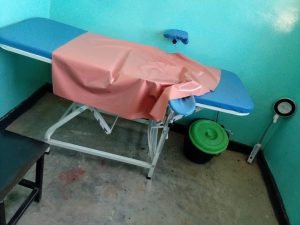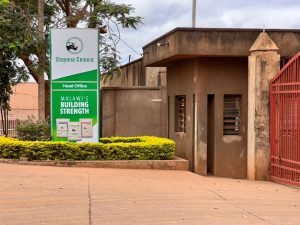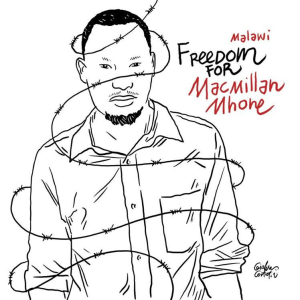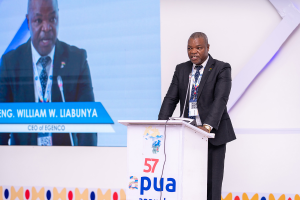DECADES OF CHALLENGE: ASSESSING THE ANTI-CORRUPTION BUREAU’S PERSISTENT STRUGGLES IN MALAWI
As the Anti-Corruption Bureau (ACB) of Malawi reflects on its 25-year tenure, it confronts a history replete with operational and legislative challenges. This PIJ analysis delves into the Bureau’s persistent struggles, unveiling a narrative of resilience against a backdrop of structural, financial, and legal hurdles.

ACB Director Martha Chizuma
BY PIJ REPORTERS
The Anti-Corruption Bureau, since its establishment in 1998, has stood as Malawi’s bulwark against corruption. Yet, as it commemorates a quarter-century of service, the Bureau faces scrutiny over its effectiveness, hampered by enduring structural, financial, and legal constraints.
“This year marks a significant milestone, yet it brings to light the myriad challenges we’ve faced in our unwavering fight against corruption,” ACB Director Martha Chizuma reflects in a statement during the commemoration of the anniversary.
Structural and Operational Challenges.
The structural inadequacies of the ACB have significantly impeded its operations.
Since its inception, the Bureau has operated from rented premises, incurring substantial costs that drain its limited resources.
“The continuous reliance on rented spaces since 1998 has posed a significant burden on our operations,” Chizuma notes.
Moreover, the delay in expanding regional offices and insufficient resources have curtailed the ACB’s operational reach, limiting its impact across Malawi’s diverse regions.
Funding Constraints and Dependence.
The ACB’s financial woes stem from its heavy reliance on inconsistent funding sources.
“Our operational independence has often been challenged by the fluctuating nature of financial support from both the government and our international partners,” Chizuma admits.
These funding challenges have led to periods of compromised operational capacity, directly impacting the Bureau’s anti-corruption campaigns and initiatives.
Legal and Policy Hurdles
Legislative roadblocks have continually hindered the ACB’s effectiveness. Delays in crucial amendments to the Corrupt Practices Act have left the Bureau wrestling with outdated legal tools.
“The slow pace of legislative reform has often put us at a disadvantage in adapting to evolving corruption schemes,” states Chizuma.
Additionally, the protracted development of critical policies, like the Whistleblower & Witness Protection Act, has further limited the Bureau’s capabilities in safeguarding informants and effectively pursuing corruption cases.
Efficacy of Anti-Corruption Measures

Despite its efforts in combating corruption, the ACB’s impact has been mixed.
Transparency International’s Corruption Perception Index, a widely accepted measure, has consistently shown Malawi struggling with high corruption levels.
“While we have had some successes, the CPI scores over the years indicate a challenging journey in significantly reducing corruption,” concedes Chizuma.
This reflects the need for a more robust and multi-faceted approach to effectively combat corruption.
Selected High-Profile Cases
The ACB’s record includes several high-stakes cases involving senior government officials and its own former director.
Notably, the Bureau has pursued cases against former cabinet ministers Cecilia Chazama and Nicholas Dausi, linked to allegations of corruption in government procurements.
The case against Newton Kambala, another former cabinet minister, revolves around accusations of abuse of office in fuel supply procurements.

The Bureau’s former director, Rayneck Matemba, is himself embroiled in legal challenges, illustrating the complex nature of corruption that the ACB confronts.
“These cases, involving former and current high-ranking officials, signify the depth and breadth of corruption we’re committed to eradicating,” states Chizuma.
Cases like those of George Kainja, former Police Chief, further demonstrate the ACB’s resolve to pursue corruption regardless of the accused’s position or influence.
“Our pursuit of these cases, despite our challenges, underscores our dedication to justice and transparency,” she emphasized.
Another case is one involving Norman Chisale on unexplained wealth, and the TPIN case implicating former President Peter Mutharika in abuse of TPIN highlights the complexities the Bureau faces.

“These cases, particularly the intricate Zuneth Sattar investigations involving international jurisdictions, underscore the multifaceted nature of corruption we combat,” Chizuma explained.
Vice President Saulosi Chilima and the ongoing case of George Kainja are the other notable examples of the Bureau’s extensive legal battles.
“The range of cases, from high-ranking officials to complex procurement frauds like the Batatawala case, reflects the depth of corruption we confront,” notes Chizuma.
As the ACB marks 25 years, it faces a road marked with formidable challenges but also lessons learned.
“Our experience with high-profile cases has not only tested our capabilities but also strengthened our resolve. We remain steadfast in our mission to combat corruption in all its forms,” said Chizuma.
Asset Recovery: A Significant Aspect of ACB’s Mandate
In the last two decades, the ACB has got hold of assets worth close to 700 million kwachas allegedly acquired through corrupt means.
In addition to its high-profile corruption cases, the ACB’s role in asset recovery is a crucial aspect of its anti-corruption efforts.
The Bureau’s success in this area is exemplified by its preservation of properties and vehicles linked to corruption cases.
“Asset recovery is a vital part of our work, ensuring that proceeds of corruption are returned to the state,” explains Chizuma.

Properties in prime locations like Area 44 and Area 47 in Lilongwe and a warehouse in Lunzu, Blantyre, are among the significant assets preserved. The total value of these properties, amounting to MK 649,250,000.00, underscores the scale of corruption the Bureau contends with.
The Scope of Recovered Assets
The variety of assets recovered by the ACB further highlights the extensive nature of corruption in Malawi. From residential houses in urban centres like Lilongwe and Mzuzu to properties in Karonga, the ACB’s asset recovery operations cover a wide geographical area. “Each recovered asset represents a step towards justice and the restoration of public trust,” the spokesperson states. These recoveries not only signify the financial magnitude of corruption but also the ACB’s commitment to dismantling corrupt networks.
Vehicles: Symbols of Ill-Gotten Wealth
The ACB’s recovery efforts extend to luxury vehicles, often symbols of ill-gotten wealth.
Vehicles like a Mercedes Benz C180, a Range Rover, and an Audi, with a combined value of MK 34,500,000.00, represent the lavish lifestyle often financed by corrupt means.
“Recovering these vehicles sends a strong message against the misuse of public resources for personal gain,” remarks Chizuma.
Challenges in Asset Recovery
Despite these successes, the ACB faces challenges in asset recovery, including legal hurdles and the complex process of tracing and valuing assets.
“Asset recovery is a complex process, requiring meticulous investigation and legal proceedings,” Chizuma notes.
These challenges underscore the need for enhanced capacities and resources for the ACB to effectively recover assets tied to corruption.
The Impact of Asset Recovery
The impact of the ACB’s asset recovery efforts goes beyond financial restitution.
It serves as a deterrent against corruption and as a public reminder of the consequences of such illicit activities.
“Through asset recovery, we not only reclaim stolen assets but also reinforce the message that corruption does not pay,” Chizuma says. This aspect of the ACB’s work is crucial in the broader fight against corruption, contributing to the restoration of public funds and fostering a culture of accountability.
The bureau boasts of effectively preserving assets worth 708 250 000, from fraudulently acquired vehicles to houses to land and property.
The development shows how various public servants brought to court through the bureau have been investing fraudulently accumulated wealth.
This also means the government has lost the said values of revenue through corruption.
According to a document seen by PIJ, the seized assets include 11 residential houses, one warehouse, seven vehicles, three of which are unregistered and industrial machinery.
The assets are the retrieved and recovered items from concluded cases that are among the 425 that the ACB successfully prosecuted and concluded.
Previously, there have been concerns over the poor recovery of assets acquired through fraud and corruption.
However, the bureau has since established an arm specifically designed to investigate matters concerning fraudulently and corruptly accumulated wealth.
“In 2022, a special team “Tango” was set up to oversee and coordinate all investigations and prosecution of cases with a potential aspect of asset recovery, “states the ACB.
The graft-busting body further says through this approach, they seek to achieve an efficient and coordinated approach towards investigations, prosecution, and asset recovery work in the fight against corruption and other financial crimes.
They have seized Vehicles worth 34.5 million, Assets worth 649 250,000 million and Property worth 24,500 million kwacha.
ACB Looks Beyond
“Our 25-year journey has been fraught with challenges, but it has also been a learning curve. We remain committed to refining our strategies and enhancing our capacity to fight corruption,” the ACB head says without saying anything about her own ideal, which resulted in her arrest and court cases.
As the ACB looks to the future, it recognizes the need for enhanced support, both from within Malawi and its international partners.
“A corruption-free Malawi is not just our goal but a necessity. To achieve this, we require collective effort and sustained commitment,” Chizuma said.
This anniversary marks not only a time for reflection but also a call to action for stronger, more effective anti-corruption strategies in Malawi.

However, government funding records show that the ACB has, in the past two decades, received 34 billion kwachas, an amount equivalent to the annual budgetary share of a single state department.
This sums up the frequent wails that the bureau has been making of poor funding and stuffing, a development which is said to hinder their role in the corruption fight.
Similarly, the anti-corruption body has only managed to win 158 out of the total 425 successful prosecutions and completed cases. Matters: 96 (23%) were closures, and 7 (2%) were referrals.
It also comes against the backdrop of continued finger-pointing at the ACB chief Martha Chizuma for failing to perform since she assumed her position.
Meanwhile, the bureau has a backlog of 147 cases.





